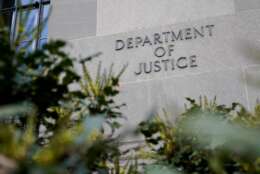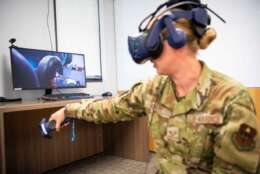Cybersecurity
-
How is DISA navigating cybersecurity and zero trust?
September 04, 2024 -
A guide from the Interagency Security Committee sheds light on how a more "mobile" federal workforce can stay secure everywhere from cyberspace to Starbucks.
September 03, 2024 -
The Army Forces Command and the Defense Innovation Unit are trying to ensure the benefits of AI tools reach all segments of the Defense Department.
September 03, 2024 -
The Army's software contracts will soon require vendors to provide bills of materials. The new policy applies to almost all software, except for cloud services.
September 02, 2024 -
New rules proposed by the Federal Aviation Administration would mandate better cybersecurity for airplanes.
August 30, 2024 -
CISA is launching the new portal as it prepares to implement landmark cyber incident reporting requirements that cover all 16 critical infrastructure sectors.
August 29, 2024 -
The Georgia Tech case centers on the university’s alleged failure to follow NIST cybersecurity controls required by DoD contracts.
August 28, 2024 -
Michael Ferguson, the global director for security transformation at Netskope, says CISA and Transportation can do more to protect this critical infrastructure.
August 28, 2024 -
"There are cybersecurity and privacy requirements that you have to meet, and that can sometimes be an issue," Brian Bothwell said.
August 28, 2024 -
Intelligence Community grapples with rapid changes in technology and world events as it modernizes recruiting practices to fill urgent skills and talent gaps.
August 28, 2024 -
Failure to comply with CIRCIA’s reporting requirements could result in subpoenas.
August 27, 2024 -
DNI Avril Haines highlighted more than a dozen initiatives, including a new performance objective for employees in the intelligence community.
August 27, 2024 -
How are agencies driving progress in HR modernization?
August 27, 2024 -
"The door is open now for any time there's an enforcement action for those businesses who were slapped by the agency to run to court," Brian Arnold said.
August 27, 2024 -
Peter Waterman is the director of the cloud security program, known as FedRAMP, after stints with USDS and the Technology Modernization Fund.
August 26, 2024
















